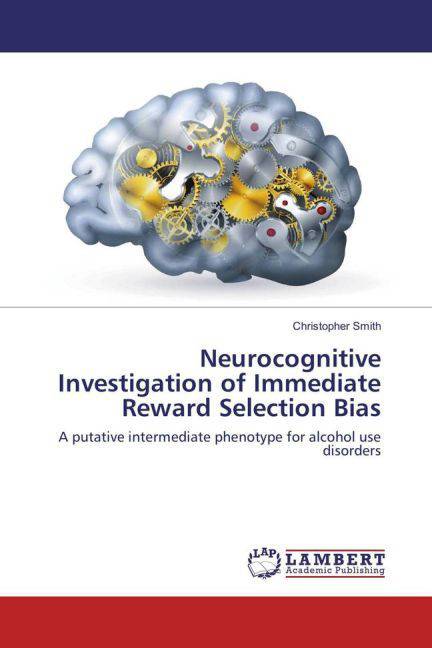
- Afhalen na 1 uur in een winkel met voorraad
- Gratis thuislevering in België vanaf € 30
- Ruim aanbod met 7 miljoen producten
- Afhalen na 1 uur in een winkel met voorraad
- Gratis thuislevering in België vanaf € 30
- Ruim aanbod met 7 miljoen producten
Zoeken
Neurocognitive Investigation of Immediate Reward Selection Bias
A putative intermediate phenotype for alcohol use disorders
Christopher Smith
Paperback | Engels
€ 49,45
+ 98 punten
Omschrijving
This work focuses on the effects of various state (age, alcohol use) and trait (gender, genetics) factors on immediate reward (Now) bias (choosing "Now" over "Later) in human subjects. Understanding variables affecting Now bias is important as it has been suggested to serve as an intermediate phenotype for drug abuse. Here, I add to this body of data by showing heavy drinking adults without an alcohol use disorder (AUD) have immediate reward bias that is approximately equal to that seen in adults with AUDs. Light drinking adults with a family history of AUDs were also found to have immediate reward bias that is approximately equal to that seen in adults with AUDs. Furthermore, we found that immediate reward bias generally decreases with age in light/moderate drinkers, suggesting a potential role of brain maturation (which asymptotes in the mid-twenties where we also see changes in immediate reward bias at around age 26). Furthermore, we show that a genetic polymorphism affecting dopamine signaling and the female hormone estradiol modulate immediate reward bias. Thus, individual differences can modulate this Now bias behavior and affect future treatments to decrease it.
Specificaties
Betrokkenen
- Auteur(s):
- Uitgeverij:
Inhoud
- Aantal bladzijden:
- 128
- Taal:
- Engels
Eigenschappen
- Productcode (EAN):
- 9783659956485
- Uitvoering:
- Paperback
- Afmetingen:
- 150 mm x 220 mm

Alleen bij Standaard Boekhandel
+ 98 punten op je klantenkaart van Standaard Boekhandel
Beoordelingen
We publiceren alleen reviews die voldoen aan de voorwaarden voor reviews. Bekijk onze voorwaarden voor reviews.











